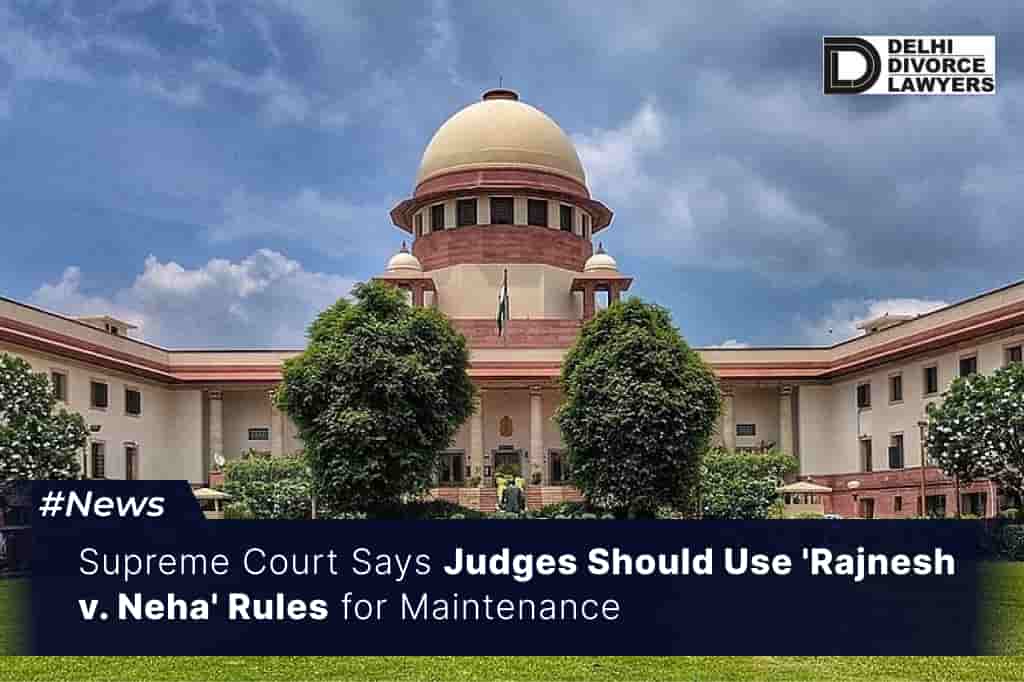On the 6th of November 2023, the Supreme Court, in light of observed noncompliance with maintenance directives as articulated in the precedent of Rajnesh v. Neha and Another (2021) 2 SCC 32, particularly within the realm of matrimonial litigation, promulgated a directive. The apex court mandated the widespread dissemination of the comprehensive guidelines enunciated in the judgment to expedite the adjudication of matters pertaining to maintenance awards. This directive is binding upon all judicial officers presiding over matters within the jurisdiction of High Courts.
The genesis of this directive lies in a bench presided over by Justice Vikram Nath and Rajesh Bindal, which entertained an appeal challenging a High Court order characterized as ‘cryptic.’ The impugned order substantially modified a judiciously reasoned decision of the Family Court, resulting in a reduction of the father’s monthly maintenance obligation vis-à-vis his minor daughter, diminishing it from Rs. 20,000 to Rs. 7,000.
“Considering the facts of the case in hand and the other similar cases coming across before this Court not adhering to the guidelines given in Rajnesh’s case (supra), we deem it appropriate to direct the Secretary General of this Court to re-circulate the aforesaid judgment not only to all the Judicial Officers through the High Courts concerned but also to the National Judicial Academy and the State Judicial Academies, to be taken note of during the training programmes as well. Ordered accordingly” the Court ordered.
In the pivotal judicial pronouncement of Rajnesh v. Neha in 2020, the Supreme Court promulgated comprehensive jurisprudential guidelines delineating the procedural framework for adjudicating matters of maintenance within the context of matrimonial proceedings. These guidelines encompass procedural imperatives, criteria for the quantification of maintenance, directives pertaining to the initiation of maintenance awards, mechanisms for the enforcement of maintenance orders, and the imposition of a standardized protocol for the submission of an Affidavit of Disclosure of Assets and Liabilities by the respective parties.
However, in the extant litigation, the Court observed a conspicuous nonconformity with these established legal precepts. It underscored the recurrent nature of such non-adherence, positing that this trend contributes to the escalation of legal disputes, necessitating their appellate scrutiny at higher judicial forums.
“The case in hand is not in isolation. Even after pronouncement of the aforesaid judgment, this Court is still coming across number of cases decided by the courts below fixing maintenance, either interim or final, without their being any affidavit on record filed by the parties. Apparently, the officers concerned have failed to take notice of the guidelines issued by this Court for expeditious disposal of cases involving grant of maintenance. Comprehensive guidelines were issued pertaining to overlapping jurisdiction among courts when concurrent remedies for grant of maintenance are available under the Special Marriage Act, 1954, Section 125 Cr.P.C., the Protection of Women from Domestic Violence Act, 2005, Hindu Marriage Act, 1955 and Hindu Adoptions and Maintenance Act, 1956, and criteria for determining quantum of maintenance, date from which maintenance is to be awarded, enforcement of orders of maintenance including fixing payment of interim maintenance. As a result, the litigation which should close at the trial level is taken up to this Court and the parties are forced to litigate,” the Apex Court said.
In the ongoing legal proceedings, the Court highlighted the primary focus on the child’s well-being in such instances. It was observed that, in the absence of a comprehensive explanation, the High Court reduced the monthly maintenance amount from ₹20,000/- to ₹7,500/-. This adjustment was based on the father’s past business activities and his current financial challenges. Furthermore, the Supreme Court underscored that this alteration occurred notwithstanding the Family Court’s detailed justification for the initial maintenance order.
“The impugned order passed by the High Court is cryptic and is bereft of reasons” the Apex Court said, while remitting the matter back to the High Court for fresh consideration.

